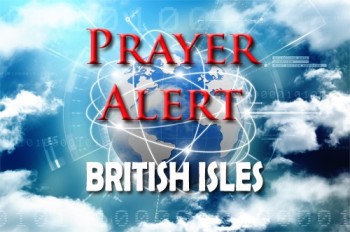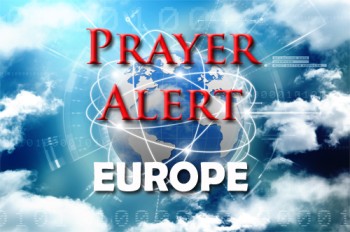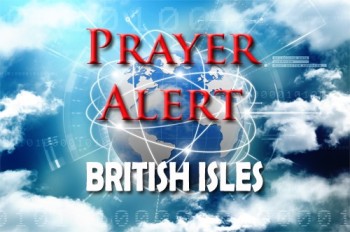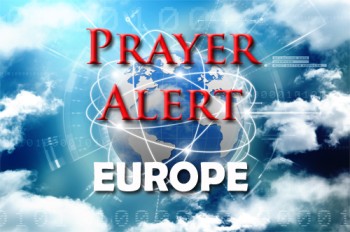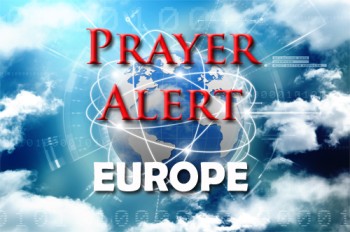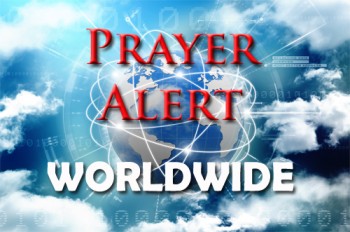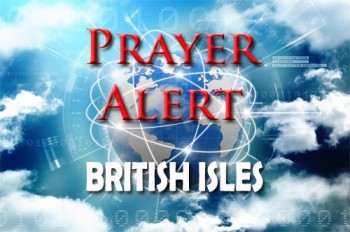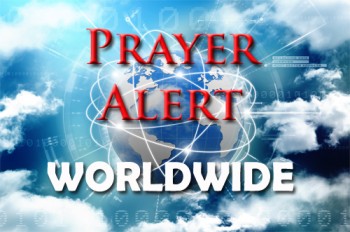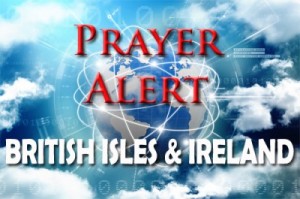Displaying items by tag: people trafficking
Illegal Migration Bill
The Illegal Migration bill is central to stopping small boats crossing the Channel. A Lords sitting on the Bill branded it disgraceful and made changes. On 12 July MPs rejected those changes. Theresa May said the bill would consign more people to slavery. Many Tories wanted a different approach. But they could not stop MPs rejecting the Lords amendments. The bill now returns to the Lords for more marathon voting sessions. The Lords amendments are backed by figures including Justin Welby. The Salvation Army said, ‘The UK risks undermining our world-leading system of protections and lifesaving services for vulnerable victims of crime. These include people tricked into coming to the UK illegally and under false pretences, to be exploited in our farms, factories, and building sites or trapped and traded in brothels and even homes.’ Should the bill become law, victims will lose vital protection. MPs will debate it again next week.
Europe: migrants shipwrecked
Over 100 migrants died and 80 were recovered alive after their overloaded boat of 200+ people sank in rough seas off southern Italy. It was trying to land near Crotone. 43 bodies were recovered from a nearby beach resort. The migrants were from Iran, Iraq, Syria, Afghanistan, Pakistan, and Somalia. Large numbers of people fleeing conflict and poverty cross from Africa to Italy each year. Italy’s prime minister Giorgia Meloni, who pledged to stem the migrant flow into Italy, expressed deep sorrow, blaming the deaths on traffickers. One survivor was arrested for migrant trafficking. Pope Francis, who often defends the rights of migrants, has said he is praying for the dead, the missing and those who survived. Sadly, 15 days earlier, 73 migrants went missing and were presumed dead after their boat sank off the Libyan coast in a boat en route to Europe on the world's deadliest migratory sea crossing.
Albanian migrants recruited to UK drug gangs
Albanian drug gangs use French migrant camps as recruitment grounds. They pay the passage for those prepared to work in the UK drugs industry on arrival. Senior police and immigration officials on both sides of the Channel are worried by the growing number of Albanian middlemen facilitating crossings. Albanians accounted for 1/3 of the people arriving in small boats this year. They have the right to enter France as EU tourists for up to three months without a visa., and are urged on by social media adverts promising help. Posing as an Albanian migrant, a journalist contacted two people-smugglers advertising for clients on TikTok. Both responded within half an hour, with options to pay in France or in England, and guidance for getting to Belgium or France, where a fixer would make contact. The message from both of them was ‘It's easy’.
Ukraine: Refugees’ ‘bubble of safety’
Elżbieta Jarmulska, a feisty Polish entrepreneur, is the founder of the Women Take The Wheel Initiative to provide Ukrainian refugees with a ‘bubble of safety’. She says, ‘Those women have been through so much already, walking or driving their way through a war zone and now are exposed to fear and exploitation here? I have no words for what that must be like’. Elżbieta has recruited 650+ Polish ‘amazing women’, as she describes them, driving backwards and forwards as often as they can to the Polish-Ukrainian border, in order to offer refugees safe passage. They show their ID card and proof of residence to officials, before asking if anyone wanted a lift to Warsaw. The car is full in moments. Small children are given water, chocolate and motion-sickness tablets if they need them. The women are so relieved when they see they have a female driver to help them to safety.
Channel smugglers are outwitting France and UK
People-smuggling networks in migrant camps are slick and organised. It took little more than a week for Hamid to find a people-smuggler in Calais. Within a couple of days, he was hiding near the beach with 75 others, waiting to cross the Channel in a small inflatable boat. Over 18,000 people so far this year have crossed the twenty miles of sea between Britain and France in small boats. Despite significant investment on both sides of the Channel, that's more than double the number last year. France's northern coastline is covered with dunes, foliage and hundreds of old WW2 bunkers where migrants can hide. High-security fencing and surveillance cameras now successfully protect the ports and Eurotunnel terminal, but surveillance is difficult among forested dunes. Hamid’s crossing cost £2,500, on top of the £7,275 he had paid to leave Afghanistan and cross Europe to France.
Captivity and conflicts, seventy years on
In 1949 the UN agreed a Convention of the Suppression of the Traffic in Persons and of the Exploitation of the Prostitution of Others. Seventy years later, there are an estimated 21 million forced-labour victims worldwide. Contemporary forms of slavery include trafficking, sexual exploitation, child labour, forced marriage, and abducting children for use in armed conflict. Pray for stronger, wiser networking between governments and agencies working to eliminate slavery. Also in 1949, NATO was established as the world's most powerful defence alliance. The current ‘alliance’ has strained relations between America and France, who hold opposing views, Turkey disagrees with NATO’S plans for Baltic areas, the USA is criticising NATO countries for their alliance funding, and the UK’s Armed Forces Christian Union's director said it is unfortunate that ‘public disagreements’ have marked the anniversary of an alliance created to stand for unity. See
Brexit could put child refugees at risk
1,800+ refugee children have safely and legally entered the UK from Greece, Italy and Spain through routes that ‘Safe Passage’ has opened for them. Working in Northern France, it is asking the home secretary to ensure that unaccompanied child refugees are not Brexit victims. As the UK’s EU exit is debated, little thought has been given to unaccompanied refugee children hoping to join their families in the UK. A no-deal Brexit, or a Brexit that does not consider their situation, means that under current EU law children could no longer access a safe and legal route. They might have to risk their lives in the hands of smugglers and traffickers. The only way to guarantee that Brexit does not leave them separated from their loved ones is for the Government to commit to maintaining the current family reunion safe passage arrangements from day one if the UK exits the EU.
Vietnam: Phuc, poverty and prayers
Prime minister Phuc has asked the public security and foreign ministries to investigate the trafficking of Vietnamese citizens into foreign countries after 39 people died in a refrigerated truck in Essex. Vietnam’s UK embassy and the British authorities are identifying the dead. Rural Vietnamese believe many of the dead came from their poor, rice-growing areas where families pay traffickers to take their youths abroad to work, save, repay traffickers the debt, and return home with enough money to buy land and build a home. The newly-built houses in poor districts are evidence of the money to be made, and saved, by working overseas (https://www.bbc.co.uk/news/world-asia-50203096) Father Anthony Dang Huu Nam believes most of the dead were from his parish. ‘The whole district is covered in sorrow,’ Nam said, as prayers rang out over the town on loudspeakers. ‘This is a catastrophe for our community.’ See https://www.reuters.com/article/us-britain-bodies/rural-vietnamese-mourn-loved-ones-feared-dead-in-back-of-british-truck-idUSKBN1X503U
Law enforcement response to modern slavery
Modern slavery and human trafficking are more prevalent than previously thought. A growing body of evidence points to growing numbers of victims. There are currently over 300 live policing operations targeting slavery in the UK. More than a dozen of the highest risk operations targeting organised crime groups are being led by the National Crime Agency. One recent result was the arrest of three men in North England with links to a Romanian group using the internet to advertise the services of victims trafficked for sexual exploitation, then forcing victims to launder the proceeds through criminally controlled bank accounts. Ten women were safeguarded. The group and its wider network are suspected to have made around €5 million in criminal profits. A surge in operational activity focusing on labour and sexual exploitation through May and June led to 111 arrests in the UK and 130 victims being rescued.
